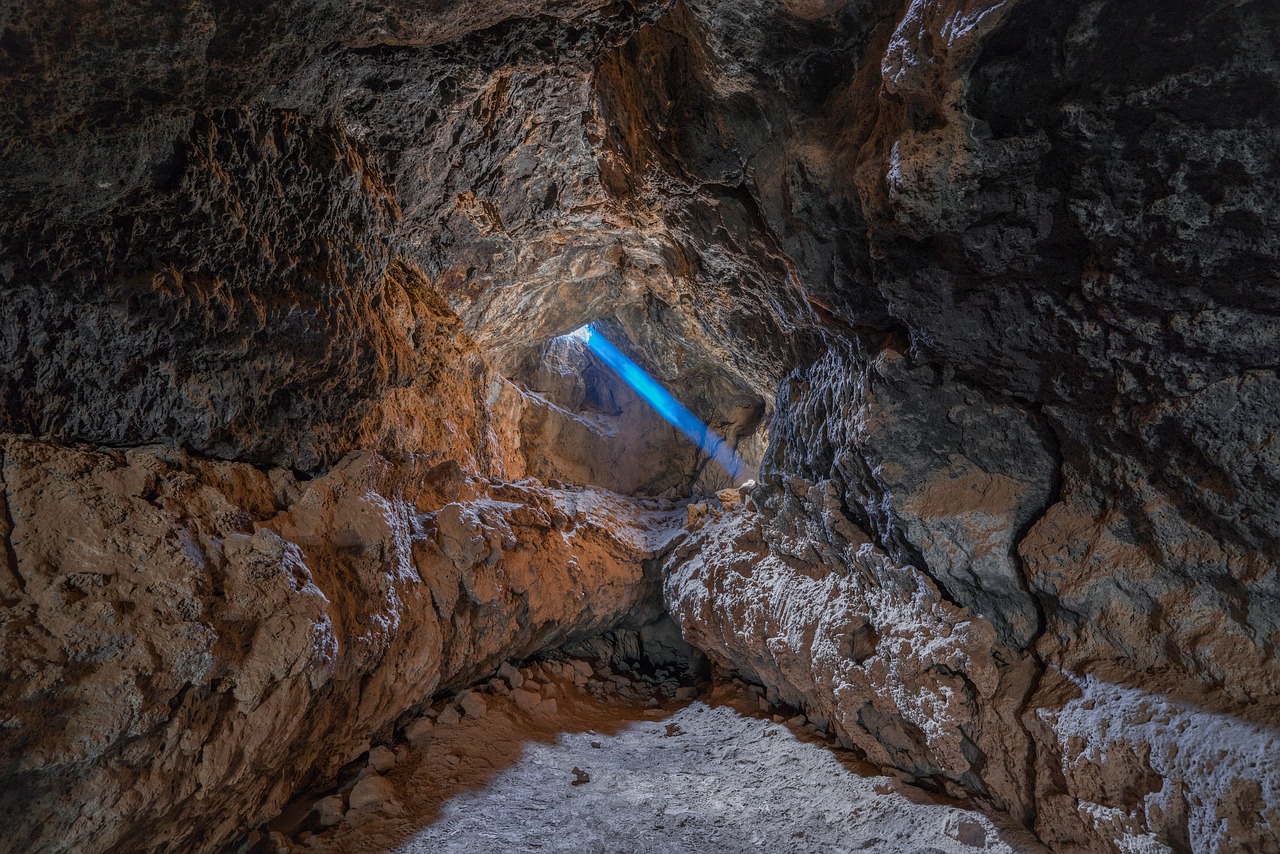Understanding the Ethics of Space Exploration
As humanity stands on the brink of a new era in space exploration, we find ourselves grappling with profound ethical questions that demand our attention. The vastness of the cosmos beckons us, yet it also challenges our moral compass. Are we merely explorers, or do we carry the weight of responsibility as we venture into the unknown? This article delves into the ethical considerations surrounding space exploration, examining the responsibilities of humanity as we venture into the cosmos and the implications of our actions on both Earth and beyond.
At the heart of our quest for the stars lies a compelling question: do we have a moral obligation to explore and utilize outer space? Some argue that the universe is our playground, a vast expanse waiting to be explored for the betterment of all. Others caution against the hubris of assuming that we have the right to claim what is not ours. This moral imperative is not just about curiosity; it’s about ensuring the survival of our species and potentially uncovering solutions to pressing problems back on Earth. Imagine discovering a new energy source or a cure for diseases hidden on a distant planet. The potential benefits are staggering, but they come with a price tag of ethical considerations that we must not overlook.
As we look to the stars, we must also consider the implications of our actions on our home planet. Space exploration opens up the possibility of utilizing resources from celestial bodies, but what does that mean for our earthly resources? The ethical dilemma here is striking. Should we mine asteroids for precious metals and minerals, or should we focus on conserving the dwindling resources we have left on Earth? The answer is not as straightforward as it may seem.
Mining asteroids and other celestial bodies offers a tantalizing prospect: a treasure trove of resources that could alleviate some of Earth's resource scarcity. However, this opportunity is fraught with ethical dilemmas. For instance, what happens to the environments of these celestial bodies when we exploit them? Are we prepared to face the consequences of our actions in space? The potential economic benefits must be weighed against the environmental impacts, creating a complex balance that we must navigate carefully.
When we think about mining in space, we often forget that these celestial bodies may harbor unique ecosystems or geological features. The ethical responsibilities of space-faring nations to minimize harm to extraterrestrial environments cannot be overstated. Just as we have laws to protect endangered species on Earth, we must develop stringent guidelines to protect the integrity of other worlds. Imagine if we were to discover microbial life on Mars or Europa; would our mining operations jeopardize their existence? This is a question that we must grapple with as we expand our reach into the cosmos.
The allure of economic gain from space resources is undeniable, yet we must consider the ethical costs associated with exploitation. If we prioritize profit over preservation, we risk creating a cycle of environmental degradation that could mirror the mistakes we've made on Earth. Balancing these two aspects—economic benefits and ethical costs—requires a thoughtful approach that prioritizes sustainability and responsibility. The challenge lies in finding a way to harness the resources of space without repeating the errors of our past.
As we explore new worlds, the concept of planetary protection becomes crucial. The ethical considerations of preventing contamination of other worlds and preserving their natural states are paramount. We must ask ourselves: how can we explore without leaving a negative impact? Establishing policies that prioritize planetary protection is essential to ensure that we do not disrupt the delicate balance of extraterrestrial ecosystems. This responsibility falls on all nations engaged in space exploration, highlighting the need for collective action and cooperation.
In an age where space exploration is no longer the sole domain of superpowers, the ethical implications of international cooperation cannot be ignored. As we venture into the cosmos, the need for shared governance and equitable access to space resources and knowledge becomes increasingly important. The question arises: how do we ensure that all nations, regardless of their economic status, can participate in this grand endeavor? It is essential to create frameworks that promote inclusivity and collaboration among nations to foster a sense of shared responsibility for the cosmos.
Existing international treaties and agreements play a vital role in governing space exploration. These frameworks aim to promote ethical practices among nations, yet their effectiveness is often debated. Are these treaties robust enough to address the complexities of modern space exploration? As we witness the emergence of new players in the space race, revisiting and reinforcing these agreements will be crucial in ensuring that all nations adhere to ethical standards.
The ethical considerations surrounding access to space technologies and exploration opportunities for developing nations are significant. It is imperative to emphasize inclusivity in space endeavors, allowing all nations to benefit from the advancements in space exploration. By fostering equitable access, we can create a more collaborative and responsible approach to exploring the cosmos.
As we contemplate the long-term implications of establishing human settlements in space, we must consider the ethical issues related to colonization, sovereignty, and the preservation of extraterrestrial ecosystems. The idea of colonizing another planet is both exciting and daunting. What rights will we have over these new worlds? How do we ensure that we do not repeat the colonial mistakes of our past? The future of human presence in space is not just about survival; it is about doing so ethically and responsibly.
- What are the main ethical concerns of space exploration?
The main concerns include the potential for environmental degradation, equitable access to resources, and the implications of contamination of other worlds. - How can nations collaborate ethically in space exploration?
By establishing international treaties and agreements that promote inclusivity and shared governance. - What is planetary protection?
Planetary protection refers to the policies and practices aimed at preventing contamination of other worlds and preserving their natural states.

The Moral Imperative of Space Exploration
As we stand on the brink of a new era in space exploration, the question arises: do we have a moral obligation to venture into the cosmos? This isn't just about rockets and satellites; it's about our very essence as a species. The drive to explore has been deeply embedded in humanity since the dawn of time. From the first steps on the moon to the ongoing missions to Mars, our quest for knowledge and understanding of the universe is a reflection of our innate curiosity. But with this curiosity comes responsibility.
Many argue that exploring space is not merely a choice but a moral imperative. As we face challenges such as climate change, resource depletion, and overpopulation, the potential benefits of space exploration cannot be ignored. For instance, the idea of colonizing other planets could provide a safety net for humanity, a backup plan if Earth becomes uninhabitable. This leads us to consider the ethical implications of utilizing resources beyond our planet. Should we harness the vast mineral wealth of asteroids or the potential for sustainable living on Mars? The answers to these questions are not straightforward.
Moreover, the exploration of space offers us a unique opportunity to unite as a global community. Imagine a world where nations collaborate to explore the final frontier, sharing knowledge, technology, and resources. This collaboration could foster peace and understanding, bridging divides that have plagued humanity for centuries. However, with great power comes great responsibility. As we reach for the stars, we must also ensure that our explorations do not lead to the exploitation of other worlds, just as we have often exploited our own.
In essence, the moral imperative of space exploration can be summarized in a few key points:
- Preservation of Humanity: Establishing a human presence beyond Earth could safeguard our species from existential threats.
- Scientific Advancement: The pursuit of knowledge through space exploration can lead to breakthroughs that benefit life on Earth.
- Global Unity: Collaborative efforts in space can promote international cooperation and peace.
- Ethical Resource Utilization: We must approach the extraction of space resources with caution and respect for potential extraterrestrial environments.
As we continue to push the boundaries of what is possible, we must ask ourselves: Are we ready to embrace the ethical responsibilities that come with our exploration of space? The journey into the cosmos is not just about the destination; it's about how we conduct ourselves along the way. The choices we make today will shape the future of humanity's relationship with the universe and each other. As stewards of our planet and potential explorers of others, we must tread carefully, ensuring that our actions today do not compromise the integrity of tomorrow.

The Impact on Earthly Resources
As humanity boldly ventures into the vastness of space, one pressing question looms large: what is the impact of our cosmic pursuits on the resources of our own planet? The ethical implications of space exploration extend beyond the stars, directly challenging us to consider how we utilize the resources found in the cosmos and how that might affect our home, Earth. Are we simply looking for new frontiers, or are we also searching for a solution to our growing resource needs? This duality presents a moral dilemma that cannot be ignored.
When we think about space exploration, we often envision rocket launches and distant planets. However, the conversation should also include the tangible resources that lie within our reach, such as asteroids rich in metals and minerals. The potential for mining these celestial bodies could be revolutionary, offering a new source of materials that are becoming increasingly scarce on Earth. For example, rare earth elements, which are crucial for modern technology, could be mined from asteroids, alleviating some of the stress on terrestrial resources.
Yet, this raises an important ethical question: should we exploit these off-world resources when we have not fully addressed the sustainability of our own planet? The answer is not straightforward. On one hand, utilizing space resources could lead to significant economic benefits, potentially fueling advancements in technology and infrastructure. On the other hand, it risks creating a cycle of exploitation that mirrors the environmental degradation we witness on Earth. Are we, in our quest for progress, merely repeating the mistakes of our past?
To illustrate this point, consider the following table that compares resource utilization on Earth with potential benefits from space mining:
| Resource Type | Current Earth Supply | Potential Space Source | Ethical Considerations |
|---|---|---|---|
| Rare Earth Elements | Limited and concentrated in specific regions | Asteroids could contain vast amounts | Exploitation vs. preservation |
| Water | Depleting freshwater sources | Ice on moons like Europa | Utilization vs. contamination |
| Metals (Gold, Platinum) | Mining leads to environmental damage | Asteroid mining could be less damaging | Economic benefit vs. ecological cost |
This table highlights the stark contrast between our current resource challenges on Earth and the potential benefits of space mining. However, it also underscores the ethical dilemmas we face. Should we prioritize immediate gains from space resources, or should we focus on sustainable practices here on Earth? The answer lies in finding a balance that respects both our planet and the cosmos.
Furthermore, the concept of planetary stewardship cannot be overlooked. As we explore the universe, we have a responsibility to ensure that our actions do not lead to irreversible damage to other celestial bodies. This brings us to the critical notion of environmental ethics in space exploration. Just as we are tasked with protecting our own environment, we must also consider the implications of our actions on other worlds.
In conclusion, the impact of space exploration on earthly resources is a complex tapestry woven with opportunities and challenges. As we stand on the brink of new discoveries, we must reflect on our ethical obligations to both our planet and the universe. Will we choose to be responsible stewards of the cosmos, or will we allow greed and exploitation to dictate our actions? The choice we make today will shape not only our future but the legacy we leave for generations to come.
- What are the main ethical concerns regarding space resource utilization?
The primary concerns include the potential for environmental degradation, the sustainability of resources, and the implications of exploiting extraterrestrial environments.
- How could mining asteroids benefit Earth?
Mining asteroids could provide access to rare materials that are becoming scarce on Earth, potentially reducing environmental damage caused by terrestrial mining.
- What responsibilities do space-faring nations have?
Space-faring nations have a responsibility to minimize harm to extraterrestrial environments and to ensure that their actions do not lead to contamination or degradation of other worlds.

Resource Utilization in Space
As we stand on the brink of a new era in human history, the concept of has become a hot topic of discussion. Imagine a future where we can mine asteroids for precious metals or extract water from the Moon to support long-term human presence in space. The potential benefits are staggering, but so are the ethical dilemmas that come with them. Are we prepared to treat these celestial bodies as mere resources for our consumption, or do we have a moral obligation to protect them?
The allure of space resources is undeniable. For instance, the asteroid belt between Mars and Jupiter is estimated to contain vast amounts of minerals, including nickel, iron, and cobalt. These materials could be used to support construction efforts on Earth or even to build infrastructure in space. In fact, some estimates suggest that a single asteroid could hold more platinum than has ever been mined on our planet. However, the question remains: should we exploit these resources, or should we prioritize the conservation of our own planet's resources?
One of the most significant ethical considerations is the impact of space mining on extraterrestrial environments. Just as we have seen the devastating effects of mining on Earth—deforestation, habitat destruction, and pollution—there is a real risk that similar practices could occur in space. If we are to engage in resource utilization, we must do so with a plan that minimizes environmental degradation. This brings us to the concept of sustainable space exploration, which emphasizes the need to balance our resource needs with the preservation of cosmic environments.
Moreover, the economic implications of space mining cannot be ignored. The potential for profit is enormous, but it raises questions about who gets to benefit from these resources. Will it be the wealthy nations and corporations that can afford the technology to mine asteroids, or will there be a way to ensure that the wealth generated is shared equitably? This is where international cooperation and ethical governance come into play. We must establish frameworks that prevent exploitation and ensure that all of humanity can benefit from the riches of the cosmos.
In conclusion, the utilization of resources in space presents a double-edged sword. On one side, it offers incredible opportunities for advancement and sustainability on Earth, but on the other, it poses significant ethical challenges. As we venture into this uncharted territory, we must tread carefully, ensuring that our actions do not lead to the same destructive patterns we have witnessed on our home planet. Only by embracing a responsible approach to space resource utilization can we hope to preserve the integrity of the universe for generations to come.
- What resources can be mined in space? - Asteroids are rich in metals like platinum, nickel, and iron, while celestial bodies like the Moon may provide water ice.
- What are the ethical concerns of space mining? - The potential for environmental degradation and the equitable distribution of resources are major ethical issues.
- How can we ensure sustainable resource utilization in space? - By implementing strict regulations and international agreements that prioritize environmental protection.
- Who will benefit from space resources? - There is a risk that only wealthy nations and corporations will profit, highlighting the need for fair governance.

Environmental Ethics in Space Mining
As humanity sets its sights on the stars, the prospect of mining asteroids and other celestial bodies brings with it a host of environmental ethical dilemmas. While the allure of tapping into the vast resources of space is tantalizing, we must pause and consider the implications of our actions. Are we prepared to handle the responsibility that comes with this cosmic venture? Just as we have seen on Earth, where the exploitation of natural resources often leads to environmental degradation, the same could happen beyond our planet.
One of the pivotal questions we face is whether we will treat these extraterrestrial environments with the respect they deserve. The environmental ethics of space mining compel us to think critically about our actions. For instance, the extraction of resources from asteroids could potentially disrupt their natural state, leading to unforeseen consequences. Imagine if we were to strip a celestial body of its resources without fully understanding the ecological balance that exists there. It could be akin to clear-cutting a forest on Earth without considering the impact on the ecosystem.
Moreover, the concept of planetary stewardship emerges as a guiding principle. Just as we have a duty to protect our home planet, we must also extend that duty to other worlds. This raises several ethical questions:
- What rights do we have to mine resources from other celestial bodies?
- How do we ensure that our actions do not lead to contamination of pristine environments?
- What measures can be put in place to minimize the environmental impact of space mining?
Addressing these questions requires a collaborative approach among space-faring nations. We need to establish clear guidelines and ethical standards that govern space mining operations. This could involve creating an international body dedicated to overseeing space resource extraction, ensuring that all activities are conducted sustainably and responsibly. In doing so, we can prevent a scenario where the race for resources leads to a new form of colonialism in space, where powerful nations exploit less developed ones.
In conclusion, the environmental ethics of space mining challenge us to rethink our approach to resource extraction beyond Earth. As we venture into the cosmos, we must prioritize the preservation of extraterrestrial environments just as we strive to protect our own. The decisions we make today will shape the legacy we leave for future generations of explorers. Will we be remembered as caretakers of the universe, or as reckless adventurers who plundered the cosmos?
Q1: What are the main environmental concerns associated with space mining?
A1: The primary concerns include potential disruption of celestial bodies, contamination of pristine environments, and the ethical implications of exploiting resources without understanding the ecological balance.
Q2: How can we ensure responsible space mining practices?
A2: Establishing international guidelines and ethical standards, along with creating oversight bodies, can help ensure that space mining is conducted sustainably and responsibly.
Q3: What is planetary stewardship?
A3: Planetary stewardship is the principle that emphasizes our duty to protect and preserve other worlds, just as we have a responsibility to care for our own planet.

Economic Benefits vs. Ethical Costs
As we stand on the brink of a new era in space exploration, the debate over the economic benefits versus the ethical costs of exploiting celestial resources becomes increasingly pertinent. On one hand, the potential for mining asteroids and other celestial bodies offers a tantalizing glimpse into a future where humanity can harness vast amounts of resources—resources that could alleviate some of the pressing issues we face on Earth, such as resource scarcity and energy demands.
Imagine a scenario where rare metals and minerals, crucial for technology and renewable energy, can be sourced from asteroids instead of depleting our planet's finite reserves. This could lead to a revolutionary shift in how we approach sustainability. However, this vision comes with significant ethical implications that we cannot ignore. The question arises: at what cost do we pursue these economic benefits? Are we prepared to face the consequences of our actions in the cosmos?
To explore this dilemma, let’s consider some of the key factors:
- Resource Depletion: While mining in space could reduce pressure on Earth’s resources, it raises concerns about the long-term sustainability of extraterrestrial environments.
- Environmental Impact: The potential for environmental degradation in space is a real concern. Just as we have damaged ecosystems on Earth, we could repeat these mistakes elsewhere.
- Economic Disparities: The benefits of space mining may not be equally distributed, potentially exacerbating existing inequalities between nations and corporations.
Furthermore, the economic allure of space mining can lead to a short-sighted approach, where immediate profits overshadow the need for responsible stewardship of our solar system. Companies may prioritize profit over ethical considerations, leading to practices that could harm not only other celestial bodies but also our own planet in the long run. For instance, the extraction processes used in space could mirror the environmentally damaging practices seen in terrestrial mining, raising the question: are we learning from our past, or are we destined to repeat it?
To balance these economic benefits against ethical costs, a robust framework for responsible exploration is essential. This framework should include:
| Aspect | Economic Benefit | Ethical Cost |
|---|---|---|
| Resource Extraction | Access to rare minerals | Potential harm to unspoiled environments |
| Technological Advancement | Innovation in mining technologies | Risk of monopolization by wealthy nations |
| Job Creation | New industries and employment opportunities | Displacement of local communities on Earth |
In conclusion, while the potential economic benefits of space resource utilization are vast, we must tread carefully and consider the ethical costs associated with these endeavors. The future of space exploration should not only focus on what we can gain but also on how we can do so responsibly, ensuring that we protect both our planet and the celestial bodies we wish to explore. As we embark on this journey into the cosmos, let’s remember that our actions today will shape the universe of tomorrow.
Q: What are the main economic benefits of space exploration?
A: The primary economic benefits include access to rare resources, technological advancements, and the creation of new job opportunities in the space industry.
Q: What ethical concerns arise from mining asteroids?
A: Ethical concerns include potential environmental degradation, the risk of monopolization of resources, and the impact on existing inequalities between nations.
Q: How can we ensure responsible space exploration?
A: Establishing international agreements and regulatory frameworks that promote sustainable practices and equitable access to space resources is essential for responsible exploration.

Planetary Protection Policies
As humanity stands on the brink of interplanetary exploration, the concept of planetary protection has emerged as a critical ethical framework guiding our endeavors. The essence of these policies is to prevent contamination of other celestial bodies, ensuring that we do not inadvertently disrupt their natural ecosystems. Imagine setting foot on a pristine alien world, only to discover that our own microbes have tainted its untouched landscapes. This scenario highlights the necessity of establishing robust planetary protection protocols.
Planetary protection is not just about safeguarding extraterrestrial environments; it also involves protecting Earth from potential biological risks that could arise from our explorations. For instance, if we were to bring back samples from Mars, there is a chance that we could introduce unknown pathogens to our biosphere. Thus, the ethical responsibility extends in both directions—preserving the integrity of other worlds while ensuring our own safety.
To illustrate the significance of these policies, let’s consider the guidelines set forth by space agencies like NASA and the European Space Agency (ESA). These guidelines are designed to categorize missions based on their potential to cause contamination. For example, missions to Mars, where the possibility of finding life is a tantalizing prospect, are held to stricter standards than missions to the Moon, which is considered less likely to harbor life. Here is a simplified table outlining the different categories of planetary protection:
| Category | Description | Examples of Missions |
|---|---|---|
| Category I | No special protection required (no life expected) | Moon landings |
| Category II | Standard measures to avoid contamination | Venus missions |
| Category III | Protect against contamination; Earth return missions | Sample return missions from Mars |
| Category IV | Strict measures due to potential life | Mars exploration missions |
The ethical implications of these categories extend beyond mere compliance. They compel us to ponder our role as stewards of the cosmos. Should we impose our presence on worlds that have evolved independently for eons? This question drives the conversation around planetary protection policies, urging us to adopt a more respectful and cautious approach to space exploration.
Furthermore, the international nature of space exploration complicates the implementation of these policies. As various nations and private entities embark on their own missions, a unified approach to planetary protection becomes essential. The Outer Space Treaty of 1967 serves as a foundational document, emphasizing that space exploration should benefit all humankind while promoting the peaceful use of outer space. However, as new players enter the arena, the challenge lies in ensuring that everyone adheres to these ethical standards.
In conclusion, the development and enforcement of planetary protection policies represent a vital aspect of our ethical responsibility as we venture into the cosmos. They are not merely bureaucratic hurdles, but rather essential guidelines that reflect our commitment to preserving the integrity of both Earth and the celestial bodies we seek to explore. As we look to the stars, let’s remember that with great exploration comes great responsibility, and it is our duty to tread lightly in the vast expanse of space.
- What is planetary protection? Planetary protection refers to the policies and guidelines aimed at preventing biological contamination of celestial bodies and Earth during space exploration.
- Why is planetary protection important? It is crucial to maintain the integrity of extraterrestrial environments and to protect Earth from potential biological risks.
- How are planetary protection policies determined? Policies are determined by space agencies based on the likelihood of contamination and the potential for finding life on the target celestial body.
- What are the categories of planetary protection? Categories range from no special protection required (Category I) to strict measures for missions with high contamination risk (Category IV).
- How do international treaties affect planetary protection? Treaties like the Outer Space Treaty promote collaborative efforts and ethical practices in space exploration among nations.

International Collaboration and Governance
As we stand on the brink of a new era in space exploration, the concept of international collaboration and governance has never been more crucial. With nations racing to explore the cosmos, the need for a unified approach to managing our endeavors in space is imperative. But why is it so essential? Imagine if every country operated independently, like a chaotic orchestra where each musician plays their own tune without regard for the conductor. The result would be discordant, and our efforts in space could lead to conflicts rather than discoveries.
One of the primary ethical implications of international cooperation is the shared responsibility for the preservation of space environments. As we venture beyond our planet, we must consider the impact our activities have on other celestial bodies. This shared responsibility extends to ensuring that we do not contaminate pristine environments, which could hold clues to the origins of life or even harbor life forms themselves. The ethical ramifications of our actions in space are profound, and they require a collective commitment to stewardship.
To facilitate this collaboration, various international treaties and agreements have been established. For instance, the Outer Space Treaty of 1967 serves as a cornerstone for international space law, emphasizing that space exploration should benefit all countries, regardless of their level of technological advancement. However, the effectiveness of these treaties often comes into question. Are they being upheld? Are they sufficient to address the complexities of modern space exploration? These are the questions that require ongoing dialogue and cooperation among nations.
Moreover, equitable access to space technologies is a significant ethical consideration. Developing nations often lack the resources to participate fully in space exploration, which raises concerns about space colonialism. If wealthier nations monopolize space resources, they risk perpetuating inequalities that exist on Earth. Therefore, it is vital to establish frameworks that promote inclusivity and ensure that all nations can contribute to and benefit from space exploration. This could involve collaborative missions, shared technology, and knowledge transfer initiatives that empower developing countries to engage in space activities.
In summary, the future of space exploration hinges on our ability to work together. As we chart the unknown territories of the cosmos, we must prioritize ethical considerations that promote collaboration and governance. Only by doing so can we ensure that our endeavors in space are not only successful but also beneficial for all of humanity.
- What is the Outer Space Treaty? The Outer Space Treaty is an international agreement that outlines the principles for the exploration and use of outer space, emphasizing that space should be used for peaceful purposes and benefit all humanity.
- Why is international collaboration important in space exploration? International collaboration is crucial to ensure that space exploration is conducted ethically, prevents conflicts, and promotes equitable access to resources and technologies.
- How can developing nations participate in space exploration? Developing nations can participate through collaborative missions, partnerships with more advanced nations, and initiatives that promote technology transfer and knowledge sharing.

Space Treaties and Agreements
When humanity first looked up at the stars, who could have imagined that our dreams would lead us to create a complex web of ? These legal frameworks are crucial for maintaining order and ethical conduct as we venture into the cosmos. Think of them as the rules of the road for space travel, ensuring that we don’t crash into each other or, worse yet, wreak havoc on celestial bodies. The Outer Space Treaty of 1967, for instance, laid the groundwork for international cooperation in space exploration, stating that space shall be free for exploration and use by all countries. However, it also emphasizes that the exploration of outer space must be conducted for the benefit of all humankind.
Despite the existence of such treaties, the reality is that compliance can be a slippery slope. Nations often pursue their own interests, leading to a potential conflict with the ethical obligations outlined in these agreements. For example, the Moon Agreement, which aims to govern the exploitation of lunar resources, has been ratified by only a handful of countries. This raises questions about the effectiveness of these treaties in promoting ethical practices globally. Are we truly committed to sharing the wealth of the cosmos, or are we just paying lip service to the idea?
Furthermore, as we prepare to embark on missions to Mars and beyond, the need for updated agreements becomes increasingly urgent. The original treaties were crafted in a different era, when space was largely uncharted and the concept of space mining was still the stuff of science fiction. Today, with private companies like SpaceX and Blue Origin entering the fray, the landscape of space exploration is changing rapidly. We must ask ourselves: How do we ensure that these new players adhere to ethical standards?
To address these challenges, several international organizations and coalitions are working to draft new agreements that reflect the modern realities of space exploration. The United Nations Office for Outer Space Affairs (UNOOSA) plays a pivotal role in this effort, facilitating dialogue among nations to create a shared vision for the future of space governance. Yet, the question remains: will these treaties be enough to prevent the exploitation of space resources and the potential for conflict among nations?
As we navigate these complex issues, it is crucial to recognize that ethical space exploration is not just about legal agreements; it is about fostering a spirit of international cooperation and shared responsibility. We must cultivate a culture that prioritizes the well-being of our planet and the cosmos alike. After all, as we venture into the final frontier, the way we treat other celestial bodies reflects our values here on Earth.
- What is the Outer Space Treaty?
The Outer Space Treaty is a foundational treaty that establishes the framework for international space law, emphasizing that space exploration should benefit all of humanity.
- Why is the Moon Agreement not widely ratified?
The Moon Agreement has faced criticism for its limitations on lunar resource exploitation, leading many countries to hesitate in ratifying it.
- How do space treaties impact private companies?
Space treaties primarily govern nation-states, but as private companies become more involved in space exploration, there is growing pressure to adapt these agreements to include them.

Equitable Access to Space
As we stand on the brink of a new era in space exploration, the question of equitable access to the cosmos has never been more pressing. It's not just about who gets to explore space; it's about ensuring that all nations, regardless of their economic status, have a seat at the table. Imagine a world where the vastness of space is accessible to everyone—not just the wealthiest countries. This idea is not just a dream; it's a necessity for a truly inclusive future in space exploration.
Currently, the landscape of space exploration is dominated by a handful of nations with advanced technologies and substantial budgets. This disparity raises ethical concerns about who benefits from space resources and who gets to participate in the exciting discoveries that lie beyond our atmosphere. If we allow a select few to monopolize space, we risk creating a new kind of colonialism, where the rich get richer while the rest are left behind.
To address these concerns, we must consider several key factors that can help foster equitable access:
- International Collaboration: Encouraging partnerships between nations can facilitate knowledge sharing and resource pooling. Collaborative missions can help level the playing field, allowing countries with less experience in space exploration to participate meaningfully.
- Investment in Education: By investing in STEM (Science, Technology, Engineering, and Mathematics) education in developing nations, we can cultivate a new generation of scientists and engineers who can contribute to space exploration.
- Shared Technologies: Developing frameworks for sharing satellite technology and research can empower nations that lack the resources to build their own space programs.
Moreover, the establishment of international bodies that govern space exploration can ensure that all voices are heard. For instance, organizations like the United Nations Office for Outer Space Affairs (UNOOSA) play a crucial role in promoting international cooperation in the peaceful use of outer space. By enhancing these efforts, we can work towards a system where equitable access is not just an aspiration but a reality.
However, achieving equitable access is not without its challenges. There are significant economic barriers that developing nations face, including high costs associated with launching satellites and conducting research. To mitigate these challenges, we could explore models similar to the Air Traffic Control System on Earth, where resources are shared, and costs are distributed among users. This could potentially democratize access to space, allowing more countries to participate in space exploration.
In conclusion, equitable access to space is not merely a matter of fairness; it is essential for the sustainable and responsible exploration of the cosmos. By prioritizing inclusivity and collaboration, we can ensure that the wonders of space are available to all of humanity, fostering a spirit of unity and shared purpose as we venture into the great unknown.
Q1: Why is equitable access to space important?
A1: Equitable access ensures that all nations can participate in space exploration, preventing monopolization and fostering collaboration, which leads to shared benefits and advancements in technology.
Q2: How can developing nations access space technologies?
A2: Through international collaborations, investments in education, and shared technologies, developing nations can gain access to the tools and knowledge needed for space exploration.
Q3: What role do international treaties play in equitable access?
A3: International treaties help establish guidelines and frameworks that promote cooperation and equitable sharing of space resources, ensuring that all countries have a voice in space governance.
Q4: What are the potential benefits of equitable access to space?
A4: Benefits include increased innovation, shared scientific discoveries, and the development of a global community that works together to address challenges and opportunities in space exploration.

The Future of Human Presence in Space
The concept of establishing a human presence in space is no longer just a dream confined to the pages of science fiction novels; it is rapidly becoming a tangible reality. As we stand on the brink of a new era in space exploration, we must ask ourselves: what does this mean for humanity? The future of human settlements beyond Earth brings with it a plethora of ethical considerations that we must navigate carefully to ensure that our expansion into the cosmos is both responsible and sustainable.
First and foremost, we must confront the issue of colonization. As we look to establish bases on the Moon, Mars, and potentially other celestial bodies, we must consider the implications of claiming these lands. Is it right for humanity to assert ownership over worlds that have existed for billions of years? The ethical dilemma here is profound: should we treat other planets as mere resources to exploit, or should we adopt a more respectful stance, recognizing their intrinsic value? This question echoes the historical injustices faced by indigenous populations on Earth when colonization took place, urging us to reflect on our past as we forge our future.
Moreover, the establishment of human settlements in space raises concerns about sovereignty. Who will govern these new worlds? As nations race to plant their flags on the Moon and Mars, we must consider the framework of governance that will be necessary to manage these settlements. The absence of a clear legal structure could lead to conflicts over resources and territory, reminiscent of the territorial disputes that have plagued Earth for centuries. It is essential that we establish international agreements that promote cooperation and peaceful coexistence among nations venturing into space.
Another significant aspect to consider is the preservation of extraterrestrial ecosystems. As we explore and potentially inhabit other planets, we must be vigilant about the impact our presence could have on their environments. For instance, Mars, with its fragile atmosphere and potential microbial life, could be irreparably harmed by human activity. The ethical responsibility to protect these environments is paramount, and we must strive to minimize our footprint as we expand our horizons. This involves rigorous planning and adherence to principles of environmental stewardship, ensuring that we do not repeat the mistakes made on our home planet.
In addition to these ethical dilemmas, the future of human presence in space also presents incredible opportunities for scientific advancement. Establishing a human presence on other planets could lead to groundbreaking discoveries that enhance our understanding of the universe and our place within it. Imagine the potential for research in fields like astrobiology, geology, and even psychology as we study how humans adapt to life in space. The knowledge gained from such endeavors could not only benefit humanity but also provide insights that help us tackle challenges here on Earth.
As we look toward the stars, we must also consider the social implications of becoming a multi-planetary species. How will human relationships evolve when we are no longer confined to a single planet? Will we develop a sense of unity as we share the experience of living in space, or will we create divisions based on our planetary origins? These questions are critical as we envision our future in the cosmos, and they require thoughtful discussion and planning.
In conclusion, the future of human presence in space is filled with both promise and peril. As we embark on this exciting journey, we must remain vigilant in our ethical considerations, ensuring that we do not repeat the mistakes of history. By fostering international collaboration, respecting extraterrestrial environments, and promoting inclusivity in our endeavors, we can pave the way for a future that benefits all of humanity and preserves the wonders of the universe.
- What are the main ethical considerations of human presence in space?
Key ethical considerations include colonization rights, sovereignty issues, environmental protection, and social implications of living on multiple planets.
- How can we prevent conflicts over resources in space?
Establishing international agreements and governance frameworks can help manage resources and prevent territorial disputes.
- What is the importance of preserving extraterrestrial ecosystems?
Preserving these ecosystems is crucial to maintaining the integrity of other worlds and protecting potential life forms that may exist there.
Frequently Asked Questions
- What are the ethical implications of space exploration?
Space exploration raises numerous ethical questions, primarily concerning our responsibilities as stewards of the universe. As we venture into the cosmos, we must consider the impact of our actions on both extraterrestrial environments and our own planet. This includes the moral obligation to explore for the benefit of all humanity and the potential consequences of exploiting resources from other celestial bodies.
- How does space exploration affect Earth's resources?
Exploring space can have both positive and negative effects on Earth's resources. On one hand, utilizing resources from asteroids and other celestial bodies could alleviate pressure on our planet's dwindling resources. On the other hand, it raises ethical dilemmas about whether we should prioritize conservation of Earth’s resources over exploitation of those found in space. The balance between these two perspectives is a critical discussion in the realm of space ethics.
- What are the environmental ethics associated with space mining?
Environmental ethics in space mining involve analyzing the potential impacts of extracting resources from other planets and asteroids. It's crucial to consider how these activities might harm extraterrestrial environments and to establish ethical guidelines that minimize such harm. As we look to the stars for resources, we must ask ourselves: how do we protect these new frontiers?
- Why is planetary protection important?
Planetary protection is vital to prevent contamination of other celestial bodies and to preserve their natural states. This ethical consideration ensures that we do not disrupt potential ecosystems or alter the scientific value of these worlds. By adhering to strict planetary protection policies, we uphold our responsibility to respect the integrity of the cosmos.
- What role do international treaties play in space exploration?
International treaties and agreements are essential for governing space exploration. They establish guidelines for ethical practices among nations, promoting cooperation and shared responsibility. Treaties like the Outer Space Treaty help ensure that space remains a domain for peaceful exploration and equitable use, preventing conflicts over resources and territories.
- How can developing nations access space exploration opportunities?
Equitable access to space technologies and exploration opportunities for developing nations is a pressing ethical issue. It’s essential to create inclusive frameworks that allow all countries to benefit from space exploration. This can involve sharing knowledge, resources, and technologies to ensure that no nation is left behind in the quest to explore the universe.
- What are the ethical concerns regarding human settlements in space?
The establishment of human settlements in space raises several ethical issues, including questions of colonization, sovereignty, and the preservation of extraterrestrial ecosystems. As we consider the long-term implications of living beyond Earth, we must ask ourselves how to respect the environments we encounter and what rights we have over these new worlds.



















